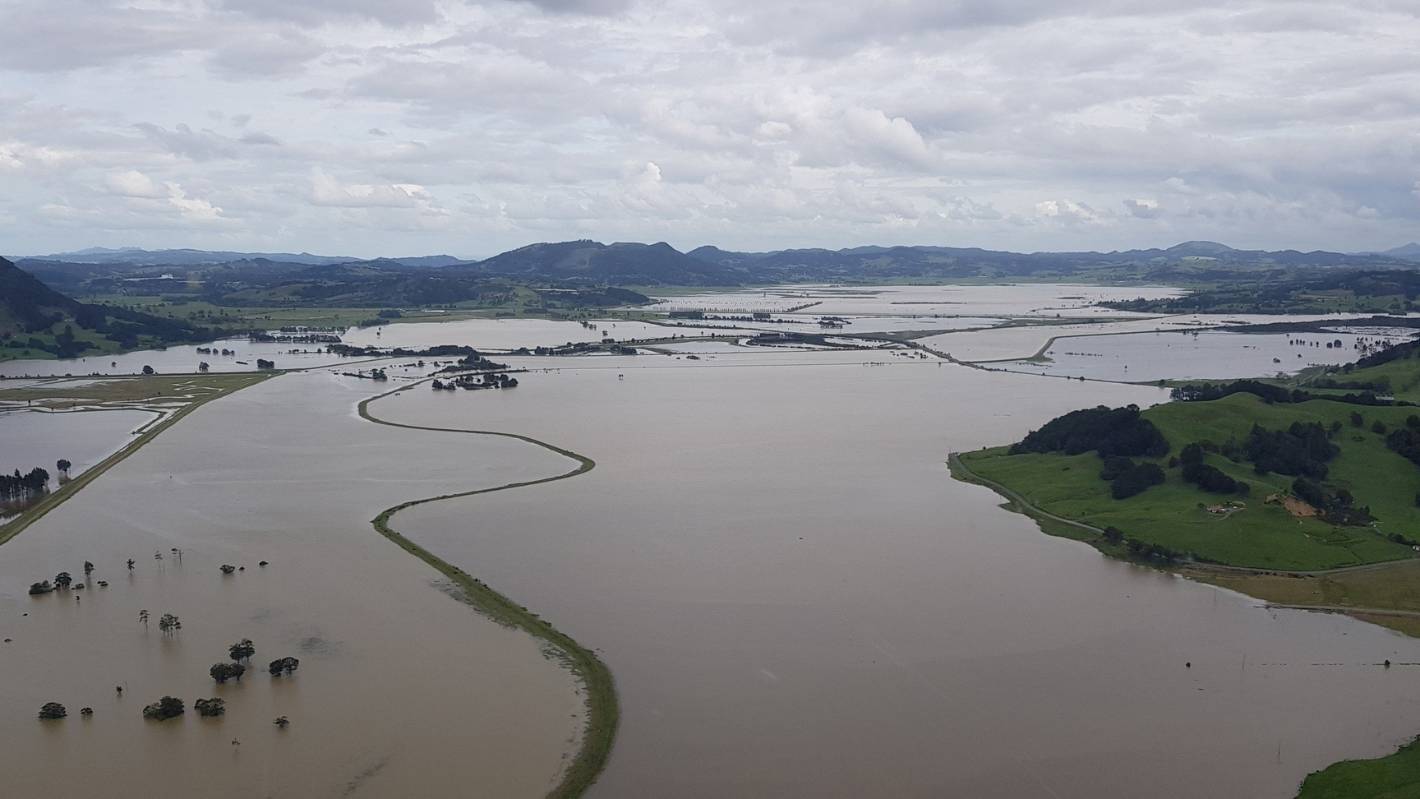Some Northland businesses are standing tall in the face of devastation from Cyclone Gabrielle and other severe weather, which has seen the region cut off from the rest of the country.
Nearly 900 businesses from Te Tai Tokerau have received government cyclone recovery funding of up to $40,000 to help stay afloat, with $8.6m distributed across the region through Northland Inc.
Businesses have used these grants to not only clean up, but diversify and become more resilient.
“I’m always proud of the fact of how resilient we just are as people here in Northland,” said Far North mayor Moko Tepania.
READ MORE:
* Government doubles cyclone recovery funding for businesses
* Cyclone Gabrielle: Northland farmers feeling mental strain as clean-up continues
* What does cyclone damage mean for our food supplies?
“There’s a general sense of getting up and going again.”
But recovery is not easy for Northland, which has dropped eight places over the last two quarterly ASB Regional Scoreboards.
Vince Cocurullo/Supplied
Cyclone Gabrielle left large parts of Northland under water for days, cutting power and communications and leaving a long clean-up.
Personal hardship has also soared, with Work and Income paying $6.1m in hardship grants to 16,900 Northlanders in the March 2023 quarter – the highest amount in the last five years.
A further $3.5m was given to 11,500 Northlanders in emergency civil defence grants, another five-year record.
For Whangārei fencing and gate installation company Action Fencing, the cyclone meant at least three weeks of not being able to work due to sodden ground.
While the cyclone eventually generated extra insurance work, it took months for clients to be able to settle with their insurers, said owner Mel Pepperell, who started the business with husband Gary seven years ago.
Supplied
Gary and Mel Pepperell from Action Fencing would have made staff redundant if not for the government’s cyclone recovery grant.
“We had no money coming in. Our priorities were keeping our staff and their families fed – that was number one – and secondly, keeping our bills paid and to keep good relationships with our suppliers,” she said.
“It has been so, so stressful.
“Less experienced people would fold. You’ve got to have a gut of steel and good relationships with people to get through something like this.”
Action Fencing was able to keep its six staff and has now hired four more to meet the demand from insurance claims.
Supplied
Heeni Hoterene from Maramataka Productions in Paihia says the government cyclone recovery grant gave her the opportunity to diversify her business.
The government’s cyclone recovery grant helped wages to be paid – preventing the abhorrent decision of which staff to lay off – plus for bills to be paid in instalments, Pepperell said.
Further north, Cyclone Gabrielle caused a communication blackout in Paihia, which meant Heeni Hoterene had to subcontract her work and miss a workshop.
Her business, Maramataka Productions, guides businesses to use maramataka – the Māori lunar cycle –with workshops and calendars.
“I’ve never recovered; I’ve been going at a slower-than-usual pace.”
Supplied
Paul Linton, chief executive of regional economic development agency Northland Inc, says Northland business owners are good at getting back up when knocked down. (File photo)
Keeping on her three staff – all solo mothers – inspired Hoterene to keep going through the hard times.
The cyclone recovery grants covered some of what was lost, plus gave her the confidence to diversify her business into the tourism market as an authentic Māori guide.
“I needed to have a change in tactic and need to look at another income stream. This provided me with the freedom to have that thought.”
Northland Inc chief executive Paul Linton said the cyclone stopped many Northland businesses in their tracks.
Most lost customers and supplies, with the region being cut-off from the rest of the country, plus staff couldn’t get to work.
Denise Piper/Stuff
Ruawai kūmera grower and secretary/treasurer of the Northern Wairoa Vegetable Growers’ Association, Warwick Simpson, says kūmara growers need ongoing support. (File photo)
Northlanders are very resilient, with neighbours helping neighbours to sweep out water or share around generators, he said.
But, while the government grants have helped save businesses, the government also needs to fix the resilience of its infrastructure – such as slip-prone State Highway 1 at Dome Valley and Brynderwyn Hills, plus the rail line, Linton said.
“The government has to front up and invest further in the north to solve these infrastructure challenges, because it’s our lifeblood.”
Meanwhile, kūmara growers near Dargaville were especially hit by Cyclone Gabrielle as they were about to harvest a year’s worth of stock and seed.
Northern Wairoa Vegetable Growers’ Association spokesperson Warwick Simpson said the government grants covered the initial clean-up but are not covering a year’s worth of income lost in one event.
One kūmara grower lost all kūmara, while some were unable to harvest even the 5% needed for seed for this coming season.
“We are figuring out how to get through the next season with a really limited income, if any.”
The association is still working with the Ministry of Primary Industries and he hoped more funding would be available to growers most impacted by the cyclone.




